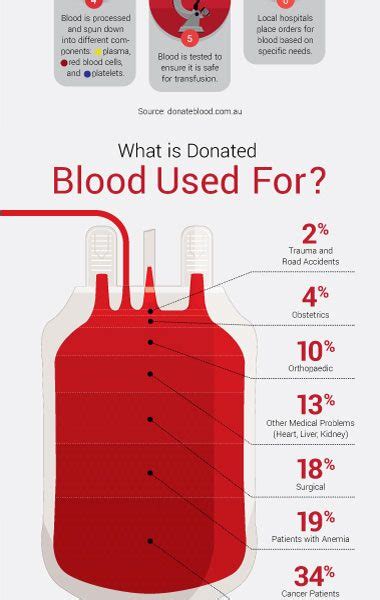In today’s competitive job market, it’s crucial to feel valued and respected in your workplace. However, there may be instances where you sense a lack of respect from your colleagues or superiors. Recognizing these signs can empower you to address the issue effectively or make informed decisions about your career path.

Signs You’re Not Respected at Work:
-
Frequent Interruptions:
– You constantly face interruptions while speaking or working on tasks. -
Dismissed Opinions:
– Your ideas and suggestions are dismissed or disregarded without proper consideration. -
Unprofessional Communication:
– You receive rude or sarcastic remarks, unprofessional emails, or inappropriate gestures. -
Limited Opportunities:
– You’re consistently overlooked for promotions, projects, or developmental opportunities. -
Lack of Credit:
– Your contributions to projects go unnoticed or are credited to others. -
Unfair Treatment:
– You observe unequal treatment or unfair distribution of responsibilities among colleagues. -
Micromanagement:
– Your work is constantly scrutinized excessively or you’re subjected to unnecessary oversight. -
Isolation:
– You feel socially excluded or marginalized from important meetings or conversations. -
Poor Salary and Benefits:
– Your compensation and benefits package falls below industry standards or what you’re qualified for. -
Lack of Growth:
– You haven’t received any significant promotions or salary increases in a substantial amount of time. -
Negative Feedback:
– You consistently receive negative or dismissive feedback, even when your performance is strong. -
Bullying or Harassment:
– You’re subjected to intimidating behavior, threats, or offensive remarks. -
Exclusion from Decision-Making:
– You’re not included in discussions or decisions that directly affect your work. -
Lack of Support:
– You don’t receive the necessary resources, training, or mentorship you need to succeed. -
Low Morale:
– The workplace atmosphere is characterized by negativity, apathy, or low productivity. -
Disregard for Personal Boundaries:
– Your time, work-life balance, or personal space is not respected. -
Negative Body Language:
– Nonverbal cues from colleagues or superiors indicate a lack of interest or disrespect. -
Lack of Recognition:
– Your accomplishments are not acknowledged or celebrated within the organization. -
Unfair Evaluations:
– Your performance reviews are consistently lower than expected or reflect biases. -
Limited Control:
– You have minimal autonomy or decision-making power within your role. -
Unreasonable Workload:
– You’re consistently overwhelmed with an excessive workload without adequate support. -
Lack of Trust:
– You sense a lack of trust from colleagues or superiors, affecting your credibility. -
Disrespectful Language:
– Swearing, name-calling, or offensive language is used towards you or in your presence. -
Exclusion from Social Activities:
– You’re not invited to company events or social gatherings. -
Unresolved Conflicts:
– Conflicts or disagreements are not addressed or resolved fairly or professionally. -
Lack of Respect for Diversity:
– Different perspectives, identities, or backgrounds are dismissed or marginalized.
Addressing the Issue:
Recognizing these signs is the first step. Here are some strategies for addressing the issue:
1. Communicate Respectfully:
Express your concerns directly to the person or group responsible for your lack of respect. Use clear and respectful language.
2. Provide Specific Examples:
When discussing your concerns, provide concrete examples of incidents or behaviors that made you feel disrespected.
3. Seek Support:
Confide in a trusted colleague, HR representative, or mentor for support and guidance.
4. Establish Boundaries:
Clearly define your boundaries and expectations regarding respectful treatment.
5. Document Incidents:
If possible, keep a record of disrespectful interactions for future reference.
6. Create a Positive Work Environment:
Focus on fostering a positive and respectful work atmosphere for yourself and others.
Common Mistakes to Avoid:
- Reacting Emotionally: Avoid being confrontational or aggressive in your response.
- Ignoring the Issue: Ignoring disrespect can lead to further escalation and erosion of morale.
- Blaming Others: While it’s important to assert your boundaries, avoid placing blame solely on others.
- Overreacting: Focus on addressing specific instances of disrespect rather than assuming the entire organization lacks respect.
- Accepting Mistreatment: Remember that professional respect is a fundamental workplace right. Don’t tolerate mistreatment.
Market Insights:
According to a recent study by the Society for Human Resource Management (SHRM), 59% of employees report experiencing disrespect in the workplace. This can have significant consequences, including:
- Low Employee Engagement: Disrespectful work environments lead to disengaged employees, reducing productivity and innovation.
- High Turnover: Disrespected employees are more likely to seek employment elsewhere.
- Damaged Reputation: Organizations with a reputation for disrespectful workplaces struggle to attract and retain top talent.
- Financial Losses: Disrespectful behavior can contribute to absenteeism, presenteeism, and legal disputes, resulting in financial losses for businesses.
Conclusion:
Feeling respected at work is crucial for job satisfaction, productivity, and overall well-being. Recognizing the signs of disrespect can empower you to take action and create a more positive and respectful work environment. By addressing the issue effectively and avoiding common pitfalls, you can maintain your self-esteem, protect your rights, and contribute to a healthy workplace culture.
Additional Tips:
- Set Realistic Expectations: Don’t expect everyone to like you or agree with you, but you deserve to be treated with respect.
- Be Assertive: Stand up for yourself and your rights without being aggressive.
- Seek Feedback: Regularly ask for feedback from colleagues and superiors to identify areas for improvement and address any issues of disrespect.
- Build Relationships: Cultivate positive relationships with colleagues and supervisors, based on mutual respect and trust.
- Remember Your Worth: You’re a valuable asset to your organization. Don’t let anyone diminish your self-worth.
















